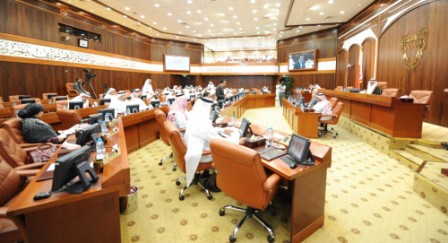MP calls for prudent waste disposal
Manama
A parliamentarian called the authorities yesterday to urgently look into the matter of waste disposal in Bahrain, as “the current methods used in the country are primitive and harmful to the environment.”
While speaking to Works, Municipalities Affairs and Urban Planning Minister Essam Khalaf, during the weekly Parliament session, held yesterday in Gudaibiya, former municipal councilor and present MP Mohsen Al Bakry claimed that the methods used to dispose of waste in the Kingdom are underdeveloped.
The discussion began as the minister presented information, in reply to Mr. Al Bakry’s previous queries on the mechanisms of waste treatment and disposal in the Kingdom.
The MP said that the followed method in Bahrain of burying waste is dangerous to both humans and the environment.
“The waste, which is being buried near Asker village since 1980, is located less than two kilometres away from houses. Additionally, burying the waste doesn’t prevent the toxic gas of Methane from being emitted into the air. On top of that, birds dig in the waste and then fly to the nearby residential areas and pose threat to the health of people,” Mr. Al Bakry explained.
He also confirmed that a project to establish a hi-tech waste disposal facility has been shelved since 2003. Moreover, the MP revealed that the assigned contractor to build the plant estimated the cost of construction to be around BD800 million, which was later reduced to BD200 million, according to Mr. Al Bakry.
“The contractor offered the country to process each ton of waste for BD45. We produce around 1.5 million tonnes a year. If this offer is accepted, the state will lose around BD67.5 million every year, which is unbearable, especially in the current financial situations we’re going through,” the legislator stressed.
Suggesting alternative solutions, Mr. Al Bakry noted to replicating experiences of advanced countries in regards to waste disposal. He stated that “in developed countries, waste is a source of income, as it could be recycled into useful materials, especially organic waste, which is mainly reused in manufacturing manure and plants fertilisers or even the production of energy.”
He commented, “45 pc of our waste is organic and we can definitely benefit from selling it. Nonorganic waste, mostly metal, could be sold for recycling purposes, instead of burying it. There are companies here in Bahrain that are willing to pay for such materials.”
In conclusion, Mr. Al Bakry urged the government to immediately set a solution for waste management in Bahrain, as “it would sure have negative effects on the country’s environment and economy and people’s safety in the near future.”
Related Posts

